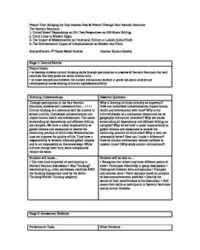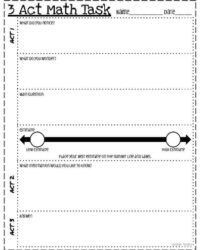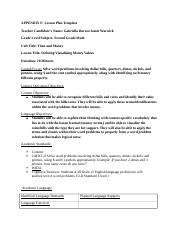Planning engaging and effective university lessons can sometimes feel like a juggling act. You are not only responsible for delivering complex subject matter but also for fostering an environment where students genuinely learn, question, and grow. This intricate process often benefits immensely from a well-structured approach, ensuring every minute in the lecture hall or seminar room is purposefully spent. Having a clear roadmap for each session not only brings clarity to your teaching but also provides students with a predictable and supportive learning journey.
The beauty of a robust plan lies in its ability to organise your thoughts, manage your time effectively, and anticipate potential challenges. It helps you align your activities with learning outcomes, making sure that what you teach directly contributes to what students are expected to know and do. For educators navigating the specific frameworks and quality assurance standards prevalent in the UK higher education system, a tailored university lesson plan template UK can be an invaluable asset, streamlining preparation and enhancing the overall quality of delivery.
The Anatomy of an Effective University Lesson Plan
Creating a truly impactful lesson plan goes beyond just listing topics. It involves a thoughtful consideration of learning objectives, teaching methodologies, student engagement strategies, and assessment methods. A well-constructed plan acts as your personal guide, ensuring you cover all essential points while also maintaining flexibility to adapt to the dynamic nature of a classroom. It’s about being prepared, not rigid.
The core components often remain consistent across disciplines, focusing on how knowledge will be imparted and how its acquisition will be verified. However, the specific nuances of the UK university system, with its emphasis on quality assurance, research-informed teaching, and student-centred learning, mean that a generic template might not fully capture all the necessary elements.
Why a UK-Specific Template Matters
The UK higher education landscape has distinct features and expectations. Universities often adhere to guidelines from bodies like the Quality Assurance Agency for Higher Education QAA, which promotes academic standards and quality. This means that lesson plans are not just internal documents but can also reflect an institution’s commitment to delivering high-quality education that meets national benchmarks. A template designed with these considerations in mind can help lecturers ensure their planning aligns with broader institutional and national standards, making accreditation processes smoother and demonstrating a clear commitment to educational excellence. It encourages a pedagogical approach that is both academically rigorous and strategically aligned with the UK’s educational priorities.
Furthermore, a university lesson plan template UK can incorporate sections that prompt reflection on inclusivity, accessibility, and the integration of research into teaching, all of which are increasingly important in the contemporary UK university environment.
Essential Elements to Include
When developing your lesson plan, consider these key components to ensure comprehensive coverage and effective delivery:
- Learning Objectives: Clearly state what students should know or be able to do by the end of the session. These should be specific, measurable, achievable, relevant, and time-bound SMART.
- Duration: Allocate precise timings for each activity to help manage the flow of the lesson and ensure all content is covered.
- Activities: Detail the teaching and learning activities, including lectures, group work, discussions, practical exercises, and problem-solving tasks.
- Assessment: Describe how student understanding will be checked during or after the lesson, whether through formative quizzes, Q&A sessions, or short assignments.
- Resources: List all necessary materials, such as readings, slides, equipment, or online tools.
- Differentiation and Support: Outline strategies to support diverse learners, including those with additional needs or varying levels of prior knowledge.
- Reflection Points: Include space for you to note what worked well, what could be improved, and any unexpected challenges or opportunities that arose.
These elements collectively form a robust framework, guiding both new and experienced educators in crafting lessons that are not only informative but also highly engaging and effective for their students.
Maximising Your Teaching Impact with a Ready-Made Template
Utilising a pre-designed template for your university lessons offers a wealth of advantages that extend far beyond simple organisation. It allows you to focus your valuable time and energy on the pedagogical aspects of teaching – designing innovative activities, fostering critical thinking, and engaging deeply with your students – rather than on the structural elements of planning. This shift in focus can significantly enhance the quality of your preparation and, by extension, the learning experience for your students.
A well-crafted template essentially front-loads the administrative burden, providing a consistent structure that you can populate with your unique content. It acts as a mental checklist, ensuring no crucial step is overlooked, from setting clear learning objectives to considering accessibility needs. This consistency is particularly beneficial if you are teaching multiple modules or working as part of a larger teaching team, as it promotes a uniform approach to lesson design across a department or course.
Here are some key benefits of adopting a structured university lesson plan template:
- Time-Saving Efficiency: Reduces the time spent on formatting and structural decisions, allowing more focus on content.
- Enhanced Consistency: Ensures a uniform approach to lesson design across different sessions and modules.
- Improved Student Engagement: A clear structure helps students understand expectations and follow the lesson progression more easily.
- Easier Peer Review and Feedback: Provides a standardised format that makes it simpler for colleagues to review plans and offer constructive criticism.
- Better Compliance with Standards: Helps meet institutional and national quality assurance requirements.
Ultimately, a good template facilitates not just better planning, but also better teaching. It supports reflective practice, allowing you to easily review past lessons, identify areas for improvement, and iteratively refine your teaching methods. This continuous cycle of planning, delivery, and reflection is a hallmark of effective university pedagogy, helping you to grow as an educator and consistently deliver high-quality, impactful learning experiences.
The process of meticulously planning each session, especially within the specific framework that a robust university lesson plan template offers, is a foundational step towards delivering truly impactful higher education. It’s an investment in clarity, consistency, and student success, ensuring that every contact hour is optimised for learning. This detailed approach not only benefits the students by providing a structured and clear learning path but also empowers educators by giving them a confident and well-prepared foundation for their teaching.
By embracing a systematic approach to lesson design, particularly one that aligns with the nuances of the UK educational context, university lecturers can significantly enhance their pedagogical practice. This commitment to thoughtful preparation ultimately fosters a more dynamic, engaging, and academically rigorous environment, contributing positively to the overall quality of higher education and helping students achieve their full potential.


